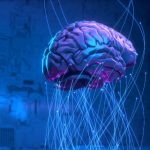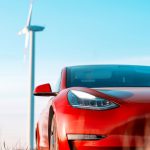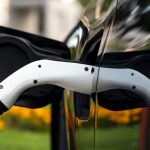As the conversation around digital infrastructure grows, the environmental footprint of artificial intelligence and data centers faces intense scrutiny. Rising electricity consumption and concerns about carbon emissions influence public debate and regulatory decisions worldwide. However, a closer examination reveals complexities that challenge the notion that these technologies conflict with climate objectives. Global economic patterns now increasingly depend on digital-first systems, requiring reliable, efficient data processing. In many countries, decisions about investing in advanced technology infrastructure will help define sustainability paths for decades. Emissions data offers unexpected insights into how digital expansion might support, rather than hinder, environmental progress.
Reporting on emissions from data centers and AI over recent years typically emphasized electricity usage spikes and rising water consumption. However, analysts have begun to highlight the indirect benefits, such as economic gains per ton of greenhouse gas produced and the efficiency improvements enabled in other industries—an approach gaining traction in recent studies. This shift in perspective contrasts earlier coverage that more commonly assessed AI primarily as a growing source of carbon output, rather than as a possible contributor to net emissions reductions through its downstream effects.
Can National Economies Rely on Digital Infrastructure for Sustainability?
Nations that prioritize building robust data center ecosystems tend to operate with higher economic efficiency and lower emissions per unit of GDP. The International Data Center Authority (IDCA) reports that the United States, with its dense concentration of data centers, achieves about half the global average of emissions per million dollars of economic output. Some European countries, especially in the Nordic region, have driven this figure even lower. Countries focused on heavy manufacturing and agriculture, including China and India, emit much more relative to their economic output, demonstrating the link between digital maturity and sustainability.
What Barriers Complicate Global Emissions Accounting?
While wealthier countries benefit from modern digital infrastructure, they often rely on outsourcing high-emissions activities to less developed countries. The U.S. and several EU nations, for example, still trail the global average in renewables adoption and transport emissions. Delegating heavy industry to countries like China and India makes global emissions accounting complex, raising questions around shared responsibility. According to Mehdi Paryavi, founder and CEO of IDCA,
“No country can truly claim moral high ground on climate, given how emissions are distributed across global supply chains.”
How Might Digital Expansion Help Emerging Economies Avoid Historical Pitfalls?
Research discussed at COP30 stresses an opportunity for developing nations to skip carbon-intensive stages of industrialization by investing in digital infrastructure. These countries typically use a fraction of the electricity consumed in developed markets, so the decisions they make today carry long-term consequences. IDCA research identifies a strong correlation between digital progress and socioeconomic improvement, urging these nations to focus on sustainable electricity grids and low-carbon construction. As these economies expand, strategic planning can help prevent the emissions legacy that has accompanied past industrial routes.
A crucial recommendation from industry leaders is to make emissions reduction a priority in the design and operation of new AI and data center facilities. The sector’s growth need not translate to unmanageable environmental loads; efficiency standards, renewable power sourcing, and sustainability criteria can limit negative impacts. Paryavi remarks,
“If world leaders encourage AI and data centers to address science and environmental challenges, they become climate solutions rather than climate risks.”
The effective use of AI can further drive decarbonization in logistics, energy, and health, creating cross-sectoral benefits that extend beyond the facilities themselves.
Shifts in climate and technology narratives reflect an evolving understanding of the digital economy’s true environmental impact. Data centers and AI will likely remain in focus as both concerns and opportunities for global decarbonization efforts. When evaluating strategies for emission reductions, leaders face a need to weigh current infrastructure against future needs and cross-border responsibilities. Investing in smart digital infrastructure—combined with strict efficiency and sustainability criteria—gives both developed and developing nations a chance to progress economically without exceeding planetary boundaries. For professionals tasked with guiding green growth, integrating AI and data management into national climate strategies is becoming less of an option and more of a responsibility.










